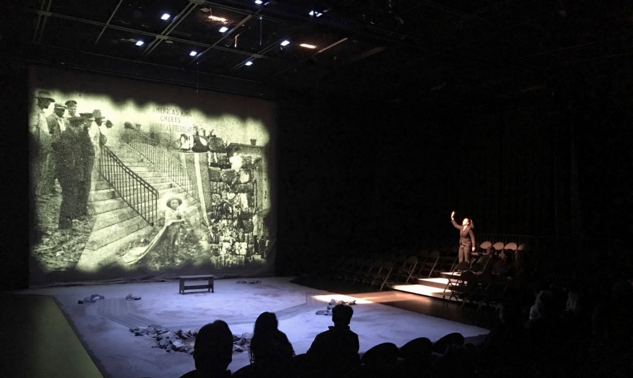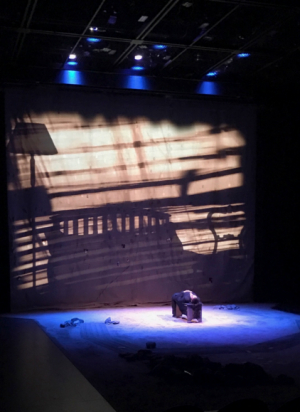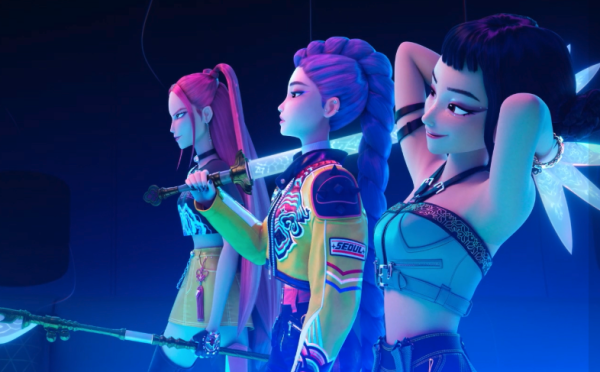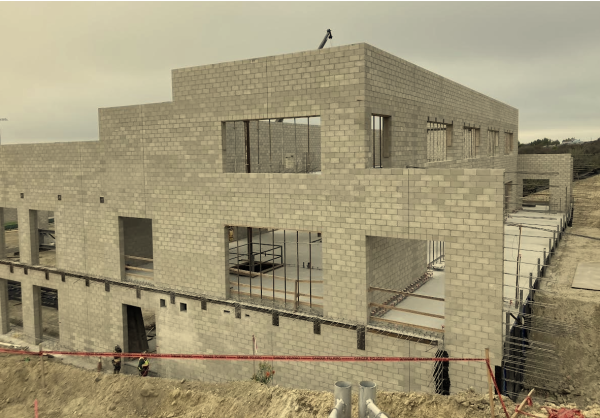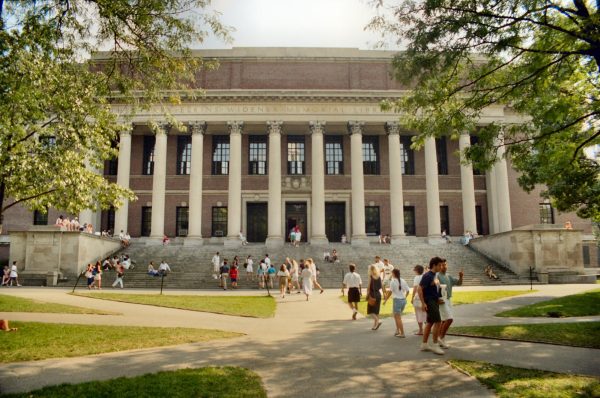Native Guard: Guarding the Past, Present, and Future since 1861
Bringing nationally acclaimed plays to campus doesn’t happen every day. But when they come, they leave a mark that forever changes the community.
Native Guard by U.S. Poet Laureate Natasha Trethewey, re-enacts a Pulitzer Prize-winning book that all students were required to read over the summer.
Mary Robinson, an essential member of the Sage Center and Sage Hill Arts Department, recalls the collection of poetry, Native Guard, as “the story of “[Natasha’s] childhood growing up in the Deep South in the 60’s during the Civil Rights Movement and all of the racial tensions and questioning that came up for her as a child.”
Facing prejudice and discrimination from both black and white people because her mother was black and her father was white, Natasha lived her childhood separated from two different, isolated communities altogether.
Later Robinson commented that after a divorce and remarriage, Natasha’s “step-father ended up murdering her mother. When her mother died, she didn’t know what to put, how to memorialize her, on her tombstone. She had a half-brother from her mother’s re-marriage who shared [her] last name, but she didn’t want to [use] that name because the man had killed her mom.
But she also didn’t want to put “Trethewey,” her last name, because it would have taken something away from her step-brother. So, they left it blank. [Natasha] really went through a lot of pain and grief about how it’s not right to leave it blank, but until [she figured] out about what [was] right [she was] going to wait on it.”
Just a few years later, Trethewey started to write a piece about all the black troops who fought in the Civil War as the Native Guard who were never memorialized. She remembered all the poems she had written about her mother and decided to combine both collections to memorialize both the Native Guard and her mother. The show began and is typically performed at the world-renowned Alliance Theatre in Atlanta.
At every show, audience members write something, someone, or an event that they wish to memorialize on a paper, just as Natasha did with her mother and the Native Guard. Students and audience members participated in this tradition by writing memory tags for the wall of the show and to become part of the family of memory tags for all future productions.
Robinson noted that “it’s a gift for the audience to have the opportunity to memorialize something that they didn’t even realize they would have the opportunity to do. It takes courage to add your significant person or event to this memory wall, but it is also an honor to have the opportunity.”
The collection of poems along with its backstory have a deeper meaning that must be understood and cherished by all audiences alike. The first act was a recitation of poetry accompanied by music and photography. The second act of the show is a talkback with the cast and audience members discussing the problems and challenges brought up during the play and brainstorming ways to move forward.
Robinson highlighted that “coming to the show with wonder and openness after reading the poetry will help [the audience] discover it in a new way or have a new experience with the poetry because of all the different elements that back it up in production.”
The lighting, backdrop, scenery, and audience all enhanced the ways in which the poetry was delivered. The lead actress, January LaVoy, has been best friends with Robinson for 15 years and, upon receiving the role, gave Robinson the book and inspired her to bring the production here.
“This show broke box office records at the Alliance, one of the nation’s top theatres. It’s a big deal, and we’re a high school,” Robinson said. “I can’t think of a high school who is producing with a professional theatre like we are.”
After spending nearly 10 months preparing for the show, Robinson was exceedingly pleased with the performance and is thankful to Danae Howe, the rest of the Sage Center team, and the Performing Arts Dept. for its support and help producing the show. South Coast Repertory’s artistic directors and staff along with The Geffen came to see the show at Sage Hill.
Robinson hoped that people would “open up and discuss what’s important to them, whether it’s about race, religion, inequality, privilege or hot-button words that have come up on our campus before. The piece may bring that up, and [she hopes] we all embrace it and see it as an opportunity rather than thinking about solely being politically correct or not. [She] really [hopes] we take it as an opportunity to discuss, learn, and grow from it together.”
The production has truly reached out to many areas of our community, and the truth stretches far beyond campus boundaries. Viewers come to face the reality of what life was like and in some places of our greater community, what life still is.
“I am grateful to our students and faculty for having the courage to participate and join the broader conversation,” Robinson said.
More important than the show itself, however, is how each person takes it in and responds to the production. Every time we remember what makes us who we are or think about the past and how we can change the future, we are memorializing our own Native Guard.


